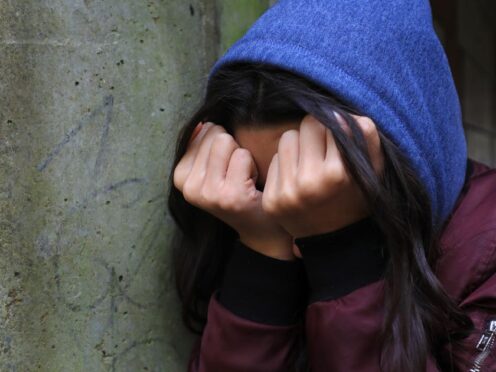British teenagers believe their generation will have a worse life than their parents, according to a new poll.
Money, jobs and climate change were named among the concerns of 1,001 teenagers aged 14 to 17 who were questioned by YouGov for children’s charity Barnardo’s.
When asked to imagine their lives at the age of 30 years, 55% of teenagers said they believed their lives would be worse than the previous generation while another 34% thought the next generation of children’s lives would not be any better.
Some 9% said they felt “hopeless” about their future.
One teenager said: “Everyone is struggling these days. My mum struggles to pay the bills and she’s a nurse with a master’s degree.
“I’m not that clever, so imagine my life will be harder than hers. We used to be able to go on holidays but mum can’t afford it any more.”
Another said: “My parents got their mortgage at 21. I don’t think people my age will be able to do that.”
Money worries were something that 19% felt they would struggle with, as they believed they would not have enough money at 30 to live comfortably.
Some 10% of the teenagers felt they were unable to change their futures.
Barnardo’s chief executive Lynn Perry said the fact that children believe their lives will be harder than their parents “is a sign the social contract is broken and we’re at risk of failing the next generation”.
She added: “It’s our job to make the world better for our children, not worse.”
A bleak picture of children’s lives in the UK is revealed in a new report from Barnardo’s – Changing Childhoods, Changing Lives – which looks at how issues such as the cost of living, Covid pandemic and environmental concerns are having an impact.
The charity forecasts that circumstances could get tougher, with spiralling children’s mental health problems, increased risk of online exploitation and a rising number of youngsters in care.
Ms Perry added: “Children are constantly being bombarded with news of the challenges they face – from worsening inequality and environmental concerns to health worries and an out-of-control housing market.
“None of this is of their making but it’s just not right that children are left to dread the years ahead instead of feeling excited about their future. We know that to be especially true for children from disadvantaged backgrounds.”
